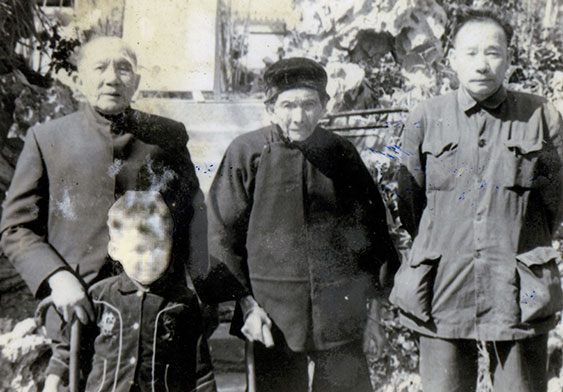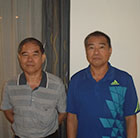
Wu Hua You worked tirelessly on the mainland to try and protect his home village
Wu Hua You (right) and Ng Wai Chi (left) had assisted the East River Column during the war against the Japanese and were friendly with senior officials in Guangdong’s Provincial Government as a result. The photo was taken in Guangzhou in the 1960s.-Provided by Wu Guo Qiang and Wu Guo Jian
Wu Hua You worked tirelessly on the mainland to try and protect his home village
Wu Hua You (right) and Ng Wai Chi (left) had assisted the East River Column during the war against the Japanese and were friendly with senior officials in Guangdong’s Provincial Government as a result. The photo was taken in Guangzhou in the 1960s.-Provided by Wu Guo Qiang and Wu Guo Jian
Father used diplomatic means to fight for compensation when ancestral properties were demolished
The Ng’s Clan in Nga Tsin Wai was divided into 4 branches, with Ng Shing Tat Tso, a member of the 9th generation, recognized as the earliest ancestor. Wu Hua You belongs the eldest branch. As the communists did not endorse clan tradition, he did not take part in the Nga Tsin Wai village affairs. Besides, he seldom mentioned the clan affairs to his son Guo Qiang and Guo Qiang’s younger brothers. When the manager of the eldest branch retired from his job, Wu Hua You succeeded him. He only explained the clan affairs to the youngest son Wu Guo Fu. In the late 1950s, the British Hong Kong government resumed the land on which the Ng’s Clan’s Ancestral Hall was built. A group of villagers led by Ng Wai Chi came to Guangzhou and sought assistance from Wu Hua You. Wu Hua You told Zeng Sheng about this. At the time, Zeng Sheng was the deputy governor of Guangdong Province and mayor of Guangzhou Municipality (also the ex-Commander of the East River Column). He discussed the matter with the Guangdong foreign affairs office and the office reported it to the Ministry of Foreign Affairs. The matter was eventually resolved through diplomatic means. The British Hong Kong government made concession and agreed to build a new ancestral hall and an ancestral school for Ng Shing Tat Tso.


 BACK
BACK  CLOSE
CLOSE 